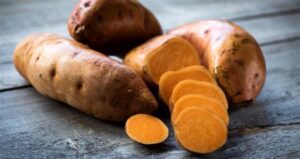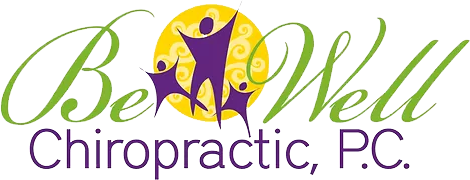
Sweet potatoes are a great way to increase your intake of Vitamin C and fiber!
What Does “Ultra Processed Foods” Mean?
We don’t care what “diet” you follow. The reality is that ultra processed foods are the problem.
The topic of “diets” can be more vitriolic and dogmatic than most topics we choose to argue about on social media. Arguments abound regarding cutting carbs, counting macros, eliminating plant foods, eliminating animal foods, and whether or not fasting is good for you. If you have been a part of our Be Well Lifestyle Program, you know that we think these conflicts are absurd.
The simple truth is that deciding what foods to eat and what to minimize is a lot easier than we make it out to be. Enter the Nova food classification system.
What is NOVA?
The Nova system was developed at the University of Sao Paulo in Brazil in 2009. It is a classification system based on placing foods into one of four groups based upon the amount of processing the food product has undergone. A basic understanding of the food class system helps to make sense of the recommendations we make in our BWCLP.
NOVA Class 1
NOVA class one is comprised of natural foods derived directly from animal or plant origins. These are foods that have been minimally processed as to remove inedible portions, but have had nothing added to them. Think an apple pulled directly from a tree or a deboned ribeye steak.
NOVA Class 2
NOVA class two is named “processed culinary ingredients.” These are items that you would find in many kitchens and are produced by extracting or milling other food products to create products that are used in food preparation. Examples include iodized salt, olive oil extracted from olives, and sugar extracted from beets or cane. Foods in this class typically are free of additives.
NOVA Class 3
Class three is called “processed foods.” Foods found in class three are derived from adding items from class 2 to foods from class 1. This type of processing can be done in your kitchen at home and is done to enhance taste and to preserve foods. Examples would include taking dates, cocoa powder, and walnuts to make “natural” brownies.
NOVA Class 4
Class 4 foods are considered ultra processed. This involves food processing done in manufacturing facilities and labs utilizing food like products we would never have in our kitchens. Ultra processed foods are made by the addition of high fructose corn syrup, food dyes, MSG, hydrogenated fats, and seed oils used in commercial food production.
How Do We Recommend Using This System?
Simply put, avoid class 4 as much as possible, and eat foods from class 3 that you make in your own kitchen. Class 4 is considered ultra processed and we encourage people to minimize and completely avoid these foods as much as possible. In fact, Brazil has adopted this classification system for their dietary guidelines and makes the same recommendation to their populace.
While class 3 foods are generally considered to be ok, it is possible to over process foods in this category. For instance, if you go to popular fast casual burrito restaurants and get a burrito bowl, the ingredients are largely “whole foods” however, they typically contain large amounts of salt and have been cooked in large amounts of canola oil thereby degrading the benefits of the foods.
Why Does It Matter?
At this point, you may be wondering “why does this matter?”
You may have even heard on TV that ultra processed foods are fine in moderation and are part of a balanced diet. Keep in mind that the purpose of making ultra processed foods is to increase profitability for large food corporations. Processing is done to increase shelf life, enhance taste, and to increase profit margins. There is a vested interest in getting you and your family to consume more ultra processed foods in the name of profit.
A paper that came out in March of 2023 looked at some of the negative effects of ultra processed foods. The paper looked at a multitude of other epidemiology studies and found that increased consumption of ultra processed foods was correlated with colorectal cancer, breast cancer, and pancreatic cancer among others.
Regardless of what talking heads on the news and social media say. Ultra processed foods have little to no upside (besides taste), and are potentially rife with negative consequences.

